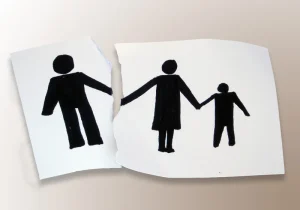
It is also beneficial for people with addictions. Get professional help from an online addiction and mental health counselor from BetterHelp. If you’re in a group setting, you, the therapist, and your group members can begin to understand the conflicts or triggers that are leading to your current emotions. Together, you can draw on shared experiences to tackle these issues and suggest ways to resolve them productively. Zentagles are patterns created inside of “tiles” on a sheet of paper.
- These enjoyable colors will aid in distracting from anxious minds.
- Due to the symbolic value of these characteristics, the box has been utilized throughout art history.
- Art therapy for addiction can be an intensely reflective process.
Including a Variety of Activities to Meet Diverse Needs and Interests
The main thing is that the color combination matches your idea of the very desire. Cut the completed abstract drawing from a magazine or newspaper into pieces of any shape. A fragment of someone else’s https://ecosoberhouse.com/ drawing must be integrated into your work. Draw a circle around the point in the center of the sheet and continue spinning in a circle for one minute. In the same way, inscribe the star in the circle.
Finishing touches from the list of 100 art therapy exercises
The courses listed below and other programs at EGS are the only expressive arts therapies training options currently available in Europe. The journal provides a safe place for a client to express their authentic voice and practice honest self-expression (Knill & Atkins, 2020). Clay sculpting during a session can be very therapeutic, as clay is moldable and remoldable.

Creativity for Addiction Recovery?
She found respite in her heroin use, and fully escaped the only way she knew how. This method of escape pulled in much-needed supports for her and her family. She ultimately stepped back into her parent role, surrounded by a supportive community. The Meaning Machine drawing series serves as a springboard for learning how internalized messages, polarized thinking, and unprocessed emotion (i.e. guilt or shame) can keep us stuck in a rut.
Emotional Release through Art

By focusing on creating intricate patterns and designs within a circular structure, participants can achieve a meditative state and find inner peace. It’s important to note that art therapy for addiction should be facilitated by trained professionals. Art therapists working in addiction treatment typically have specialized training in both art therapy techniques and addiction recovery principles. This ensures that the creative process is guided in a way that supports overall treatment goals. The therapeutic process of creating art is, in itself, a powerful tool for recovery.
- Try to create a drawing or applique together without discussing the topic in advance.
- Individuals with PTSD also had interesting findings.
- Or picture a lively game of bingo where, instead of numbers, participants mark off common cognitive distortions as they recognize them in their own thinking.
- When we say distraction, we are referring to your ability to shift your focus from the urge to use substances to release your energy in another, healthier way.
- An added benefit is that feelings of stress and anxiety are lessened as someone is partaking in an enjoyable activity.
Such art therapy activities develop imagination, fine motor skills, relieves emotional stress. On the prepared stencils, draw the emotions of those masks that you usually wear. This exercise helps you develop empathy skills, listen to yourself, tell your story on behalf of each mask. What is the feminine and masculine art therapy ideas. This is one of the simplest therapeutic art activities. First, it is discussed in groups how to create a collage on a given topic.
Creative and Therapeutic Activities

A range of activities ensures that relapse prevention programs cater to the diverse needs and interests of the group’s participants. The goal should be to include a range of activities, such as educational workshops, creative expression, physical exercise, and social gatherings. This will address various aspects of recovery art therapy ideas for adults in recovery and keep group members engaged over time. Relapse prevention activity groups are a vital part of addiction treatment programs. They encourage honest and confidential conversations. Recovery from a mental health condition such as substance abuse and addiction is a difficult journey marked by many highs and lows.
Examples of Creative and Therapeutic Relapse Prevention Group Activities
Many people stop drawing or creating art as they get older, and unfortunately, we’re no longer encouraged to use creative expression in our daily lives. However, art can be an effective tool in helping those with substance use disorder (SUD) reach and maintain recovery. The benefits of art therapy are more than just lower stress levels. Art therapy provides a non-verbal way to express pain, anxiety, or other emotional issues. It offers a way to work through tough issues that can’t be put into words or written down. Art therapy can also teach and develop skills needed to improve mental health such as introspection, self-awareness, and coping methods.
In the chapter on using art in counseling, Gladding and Newsome (2007) describe a solution-focused bridge drawing. You could also have your client craft their own box out of cardstock or cardboard, too. For many containment art directives, the process of building the box from scratch can have immense therapeutic value, in and of itself. Rather than explore the details of her experiences, I asked Sydney to depict the wall that got built as a result of those events. Although more research is needed to further determine how effective art therapy is with adult populations, there are certain groups for which art therapy appears to be a promising option. The world of mental healthcare and counseling uses various terminologies to describe treatments, mental health conditions, and more.
